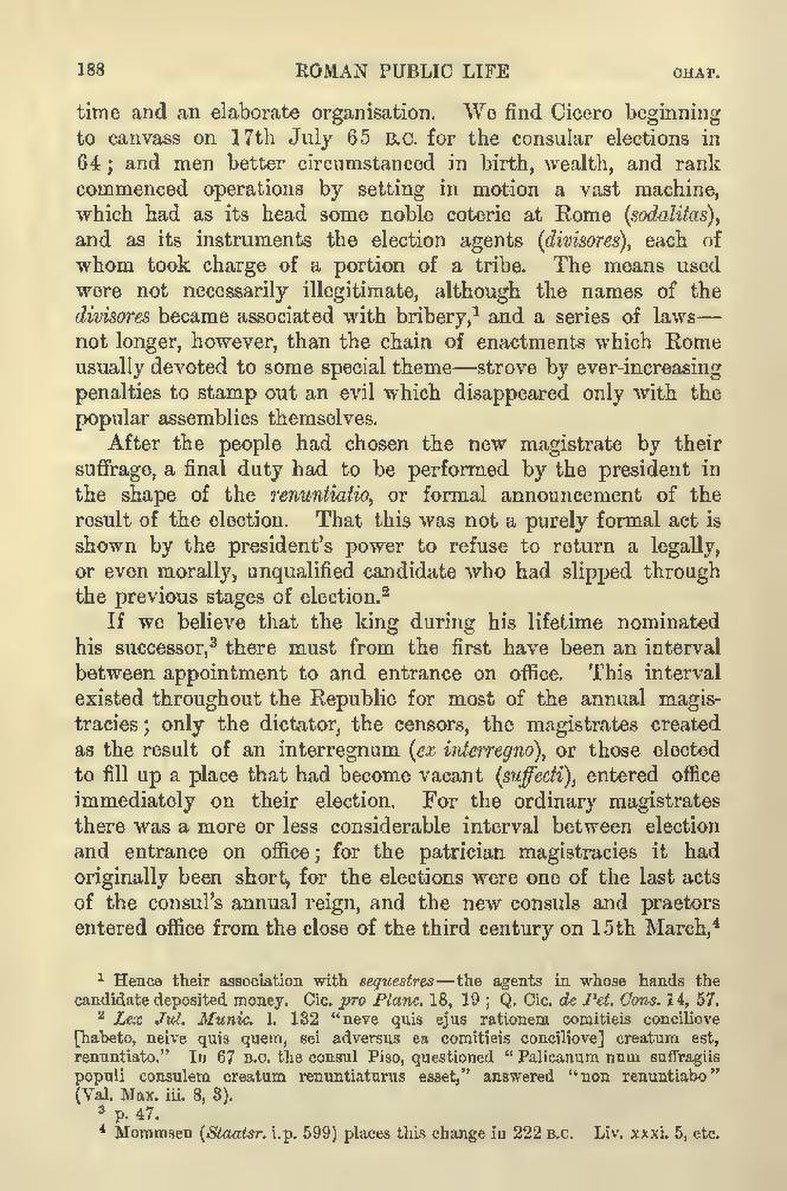time and an elaborate organisation. We find Cicero beginning to canvass on 17th July 65 B.C. for the consular elections in 64; and men better circumstanced in birth, wealth, and rank commenced operations by setting in motion a vast machine, which had as its head some noble coterie at Rome (sodalitas), and as its instruments the election agents (divisores), each of whom took charge of a portion of a tribe. The means used were not necessarily illegitimate, although the names of the divisores became associated with bribery,[1] and a series of laws—not longer, however, than the chain of enactments which Rome usually devoted to some special theme—strove by ever-increasing penalties to stamp out an evil which disappeared only with the popular assemblies themselves.
After the people had chosen the new magistrate by their suffrage, a final duty had to be performed by the president in the shape of the renuntiatio, or formal announcement of the result of the election. That this was not a purely formal act is shown by the president's power to refuse to return a legally, or even morally, unqualified candidate who had slipped through the previous stages of election.[2]
If we believe that the king during his lifetime nominated his successor,[3] there must from the first have been an interval between appointment to and entrance on office. This interval existed throughout the Republic for most of the annual magistracies; only the dictator, the censors, the magistrates created as the result of an interregnum (ex interregno), or those elected to fill up a place that had become vacant (suffecti), entered office immediately on their election. For the ordinary magistrates there was a more or less considerable interval between election and entrance on office; for the patrician magistracies it had originally been short, for the elections were one of the last acts of the consul's annual reign, and the new consuls and praetors entered office from the close of the third century on 15th March,[4]creatum est, renuntiato." In 67 B.C. the consul Piso, questioned "Palicanum num suffragiis populi consulem creatum renuntiaturus esset," answered "non renuntiabo" (Val. Max. iii. 8, 3).]
- ↑ Hence their association with sequestres—the agents in whose hands the candidate deposited money. Cic. pro Planc. 18, 19; Q. Cic. de Pet. Cons. 14, 57.
- ↑ Lex Jul. Munic. l. 132 "neve quis ejus rationem comitieis conciliove [habeto, neive quis quem, sei adversus ea comitieis conciliove
- ↑ p. 47.
- ↑ Mommsen (Staatsr. i.p. 599) places this change in 222 B.C. Liv. xxxi. 5, etc.
